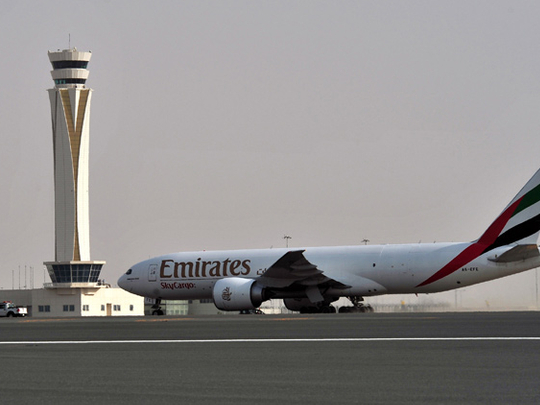
The opening of Dubai World Central-Al Maktoum International Airport this month ushers in a new era in aviation in the UAE and the region. Not only is it the world's first and largest integrated aerospace cluster in the making, but once completed it will create the region's biggest sea-to-air logistics hub, together with the Jebel Ali Port and free zone next to the airport.
The opening of the world's biggest airport, with a capacity of 160 million passengers on completion, comes just 50 years after Dubai launched its existing international airport in 1960, which eventually became the largest in the region, serving more than 40 million passengers annually.
For a city with less than two million inhabitants, this might seem ambitious to some. But then, Dubai has mastered the art of turning ambitious dreams into reality. The construction of the Palm Islands and the world's tallest tower in record time are just two examples, among many.
When Dubai launched Emirates in 1985, a lot of observers might have dismissed it as "just another airline". In 25 years, Emirates has proven its mettle and has now become a major contributor to Dubai's economy.
Once completed, the Dh120 billion Dubai World Central project with six sub-clusters — Dubai World Central-Al Maktoum International Airport, Aviation City, Residential City, Logistics City, Enterprise Park, Commercial City, Staff Village and Golf City — will help boost the economy of Dubai and the region by attracting investment and businesses.
The aviation and tourism sectors together contribute between 25 to 30 per cent of Dubai's GDP. With the new airport taking off, this contribution will surely increase, making these sectors even more important. The airport will help global travellers transit through the emirate and Dubai's main carriers — Emirates and flydubai — are gearing up to meet the needs of the expected traffic flow.








